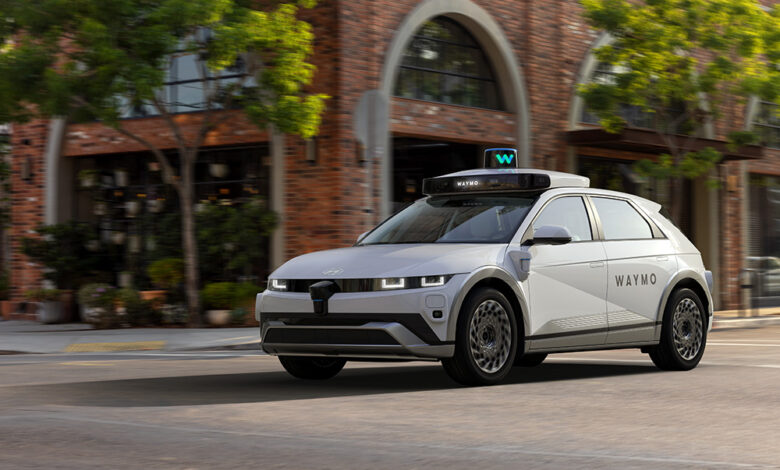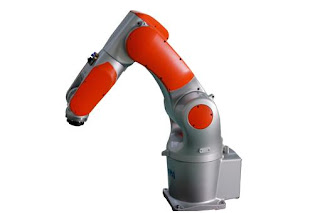Waymo to test robotaxis with safety drivers in NYC


A rendering of the 6th-generation Waymo Driver on Hyundai’s all-electric IONIQ 5 SUV. | Source: Waymo
Waymo is bringing its robotaxis to New York City. It was granted a permit to test a limited number of autonomous vehicles (AVs), equipped with safety drivers, in parts of Manhattan and Downtown Brooklyn.
The New York City Department of Transportation (DOT) said this is the first time it has granted a permit to test AVs in the city. The Alphabet Inc. subsidiary is permitted to test up to eight robotaxis in Manhattan and Downtown Brooklyn until late September 2025. After the testing period, Waymo can apply for an extension.
“We’re a tech-friendly administration and we’re always looking for innovative ways to safely move our city forward,” said Mayor Adams. “New York City is proud to welcome Waymo to test this new technology in Manhattan and Brooklyn, as we know this testing is only the first step in moving our city further into the 21st century. As we continue to implement responsible innovation, we will always prioritize street safety.”
Waymo is required to coordinate closely with the DOT through regular meetings and data reporting. Additionally, the DOT said Waymo must certify that it is adhering to the industry’s best practices related to cybersecurity. In addition to receiving DOT approval, Waymo has also obtained necessary permits from the New York State Department of Motor Vehicles.
While Waymo is in the clear for testing its robotaxis, New York City Taxi and Limousine Commission (TLC) rules still prohibit using AVs for for-hire service. Any company providing for-hire service must comply with TLC rules, including obtaining a TLC license. This means Waymo still has some roadblocks to launching a fully paid service, even if it is granted an extended permit from the DOT.

From Sun Belt to Snow Belt: Waymo eyes new terrain
Waymo, which was named The Robot Report‘s Robot of the Year in 2025, has emerged as a clear leader in the robotaxi space. In July 2025, the company announced it surpassed 100 million fully autonomous miles without a human driver behind the wheel.
The company is now driving more than 2 million fully autonomous miles and providing over a quarter million rides per week, it said. It has served more than 10 million fully autonomous trips to date. Waymo currently operates services in Phoenix, San Francisco, Los Angeles, and Austin.
While the company has hit some major milestones, there’s a key similarity between all of its autonomous driving environments so far: none of them get regular, heavy snowfall. Could this be changing in the near future? In March, Waymo announced plans to bring its robotaxis to Washington, D.C., in 2026. Washington gets an average of 13.7 in. of snow a year, according to the National Weather Service.
Waymo has also shown some interest in the city of Boston. In May, it sent a small fleet of robotaxis, driven by human drivers, to map Boston’s unique driving environment.
New York City’s snowfall can vary greatly depending on the year. For example, in the 2024-2025 season, the city saw 12.9 inches of snow. But just a few years ago, in the 2020-2021 season, it saw 38.6 inches. There likely won’t be snow in NYC over the next month. But if Waymo extends this trial in the Big Apple, snow could become a factor towards the end of the year.
“With over 10 million rides completed in five major U.S. cities and a strong safety record, we’re proud to be working with leaders to lay the groundwork to bring this life saving technology to New Yorkers one day, beginning with receiving the first-ever permit issued in the city to drive autonomously,” said Annabel Chang, head of U.S. state and local public policy, Waymo. “We believe it is essential for companies to collaborate directly with cities on the rollout of autonomous technology and are pleased to have reached this next step in New York City.”
In addition to D.C., Waymo also has plans to launch services in Miami, Atlanta, Dallas, and Tokyo in the coming years.
NYC lays groundwork for autonomous vehicle operations
Earlier this year, New York City established safety requirements for safe AV testing in the city. The requirements set up a framework for AV developers to test in the city.
“As autonomous vehicle technology expands across the country, DOT has put in place comprehensive safety guidelines to ensure safe, responsible testing on our city’s streets,” said NYC DOT Commissioner Ydanis Rodriguez. “These requirements will help ensure that the development of this technology is focused, first and foremost, on the safety of everyone who shares our busy city streets.”
The guidelines say that any AV testing in the city must not unduly impede traffic flow, pedestrian and cyclist movement, transit service, or emergency response. The NYC DOT works with applicants throughout the process to:
- Understand the competencies of the applicant’s AV technology
- Review the scope of the proposed testing plan
- Review the applicant’s test vehicle operator training program
- Discuss the company’s approach to safety, particularly as demonstrated through previous urban testing experience



